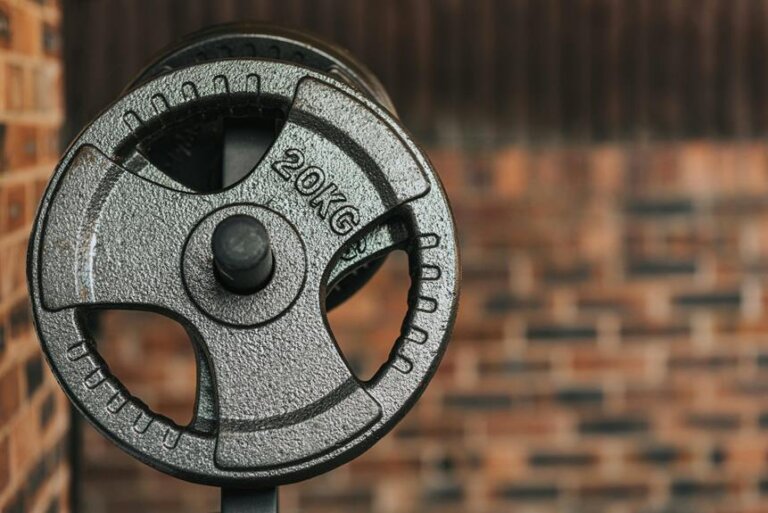Nutrition Tips to Enhance Your Exercise Performance
Ever wondered if the food you eat before a workout truly impacts your performance? Understanding the role of nutrition in exercise is crucial for achieving your fitness goals.
By optimizing your pre-workout meals, staying hydrated, and prioritizing post-exercise recovery, you can enhance your overall performance.
But have you considered the importance of protein intake and effective nutrient timing in maximizing your efforts at the gym? These key factors could be the missing pieces in your fitness puzzle, helping you unlock your full potential.
Pre-workout Nutrition
For optimal exercise performance, fuel your body with the right nutrients before your workout. Eating a balanced meal 1-2 hours prior to exercising can provide the energy you need to power through your routine. Aim for a combination of carbohydrates and protein to fuel your muscles and sustain your energy levels. Carbohydrates are your body's preferred source of energy, so include foods like whole grains, fruits, and vegetables in your pre-workout meal. Additionally, protein helps support muscle repair and growth, so consider including sources like lean meats, eggs, or plant-based options like tofu or legumes.
It's also essential to stay hydrated before you start your workout. Drinking water helps regulate your body temperature and maintain proper bodily functions during exercise. A good rule of thumb is to drink about 16-20 ounces of water 1-2 hours before your workout and another 8 ounces right before you begin. By fueling your body with the right nutrients and staying hydrated, you can optimize your exercise performance and make the most out of your workout session.
Hydration Strategies
To optimize your exercise performance, ensuring proper hydration is essential. Hydration plays a crucial role in maintaining your body's functions during physical activity.
Before starting your workout, aim to drink about 17-20 ounces of water 2-3 hours prior. During your exercise, especially if it's intense or lasting longer than an hour, drink 7-10 ounces every 10-20 minutes to replenish fluids lost through sweat.
Water is generally sufficient for activities under 60 minutes, but for longer or more intense workouts, consider sports drinks to replace lost electrolytes. Monitoring your urine color is a simple way to check your hydration status – aim for pale yellow urine, indicating proper hydration.
Additionally, weigh yourself before and after exercise; any weight lost during the workout should be replenished with 16-24 ounces of water per pound lost. By staying properly hydrated, you can maintain performance, prevent dehydration, and support your overall health during exercise.
Post-exercise Recovery Meals
Opt for a balanced post-exercise meal to replenish nutrients and aid in recovery after your workout. After intense physical activity, your body needs the right combination of nutrients to refuel and repair muscles. Aim to consume a meal containing carbohydrates, protein, and healthy fats within 30 minutes to an hour post-exercise. Carbohydrates help replenish glycogen stores, while protein supports muscle repair and growth. Including healthy fats like nuts, seeds, or avocado can help reduce inflammation and support overall recovery.
Some examples of balanced post-exercise meals include a turkey and avocado wrap with whole grain bread, a smoothie with mixed berries, Greek yogurt, and a scoop of protein powder, or a quinoa salad with grilled chicken and vegetables. Remember to hydrate adequately by drinking water or a sports drink to replace fluids lost through sweat. Avoid sugary snacks or processed foods high in unhealthy fats, as they can hinder your recovery process. By fueling your body with the right nutrients after exercise, you can optimize your recovery and be ready for your next workout.
Importance of Protein Intake
Ensuring adequate protein intake is crucial for supporting muscle recovery and growth after exercise. Protein is made up of amino acids, which are the building blocks of muscle tissue. When you exercise, especially through strength training or endurance activities, your muscles experience tiny tears that need to be repaired to become stronger. Protein provides the essential amino acids necessary for this repair process, helping your muscles recover and grow.
Incorporating protein-rich foods into your diet, such as lean meats, poultry, fish, eggs, dairy products, legumes, nuts, and seeds, is essential for optimizing your exercise performance. Aim to include a source of protein in each of your meals and snacks to ensure you're meeting your body's needs for muscle repair and growth.
Additionally, consuming protein after your workout can further enhance recovery by providing your muscles with the necessary nutrients to kickstart the repair process. Consider incorporating a protein shake, Greek yogurt, or a turkey sandwich into your post-exercise routine to support your body's recovery efforts. Remember, protein is a key player in optimizing your exercise performance and achieving your fitness goals.
Effective Nutrient Timing
Maximizing your exercise performance can be achieved through strategic nutrient timing. When you consume nutrients like carbohydrates and protein at specific times around your workouts, you can enhance your body's ability to recover and perform optimally.
Before your workout, focus on consuming a meal or snack that contains carbohydrates and a moderate amount of protein. This can provide your muscles with the energy they need to sustain your workout and prevent fatigue. Aim to eat this meal 2-3 hours before exercising to allow for proper digestion.
During your workout, especially if it's intense or prolonged, consider consuming a source of quick-digesting carbohydrates to maintain your energy levels. Sports drinks, energy gels, or easily digestible snacks can be beneficial in this scenario.
After your workout, prioritize consuming a meal or snack that contains both protein and carbohydrates within 30 minutes to two hours post-exercise. This can help replenish glycogen stores, repair muscle tissue, and promote recovery. Remember, timing is key when it comes to fueling your body for exercise performance.
Frequently Asked Questions
How Does Caffeine Consumption Affect Exercise Performance and What Are the Recommended Guidelines for Its Use Before a Workout?
To boost exercise performance, caffeine can be beneficial. Follow recommended guidelines for its use before a workout. Caffeine enhances alertness and endurance. Be mindful of your intake to avoid negative side effects like jitteriness or disrupted sleep patterns.
Are There Any Specific Foods or Supplements That Can Help With Muscle Recovery and Reduce Soreness After Intense Exercise?
To aid muscle recovery and lessen soreness post intense workouts, consider incorporating foods like berries, fatty fish, and nuts. Supplements like protein powders and tart cherry juice may also assist. Hydration is key for optimal recovery.
Can Timing of Meals Throughout the Day Affect Exercise Performance, and if So, What Are the Best Meal Timing Strategies for Optimal Results?
To optimize exercise performance, consider timing meals strategically throughout the day. Eating balanced meals before and after workouts can provide energy and support recovery. Focus on quality carbs and protein to fuel your body effectively.
How Does Alcohol Consumption Impact Exercise Performance and Recovery, and What Are the Recommended Guidelines for Alcohol Intake for Active Individuals?
To optimize exercise performance and recovery, limit alcohol intake. Alcohol can dehydrate you, affect muscle recovery, and reduce exercise capacity. Stay within recommended guidelines for active individuals, prioritizing hydration and nutrition for better results.
Are There Any Specific Nutrients or Supplements That Can Help Improve Endurance and Stamina During Exercise, and What Are the Potential Risks Associated With Their Use?
To improve endurance and stamina during exercise, certain nutrients and supplements can help. However, be cautious of potential risks associated with their use. Always consult a healthcare professional before incorporating new supplements into your routine.
Conclusion
In conclusion, remember to fuel your body with the right nutrients before, during, and after your workouts to enhance performance and aid in recovery.
Stay hydrated, focus on protein intake, and pay attention to nutrient timing to maximize your exercise results.
By following these nutrition tips, you can optimize your training sessions and achieve your fitness goals more effectively.
Keep up the good work and keep pushing yourself to reach new levels of fitness!





